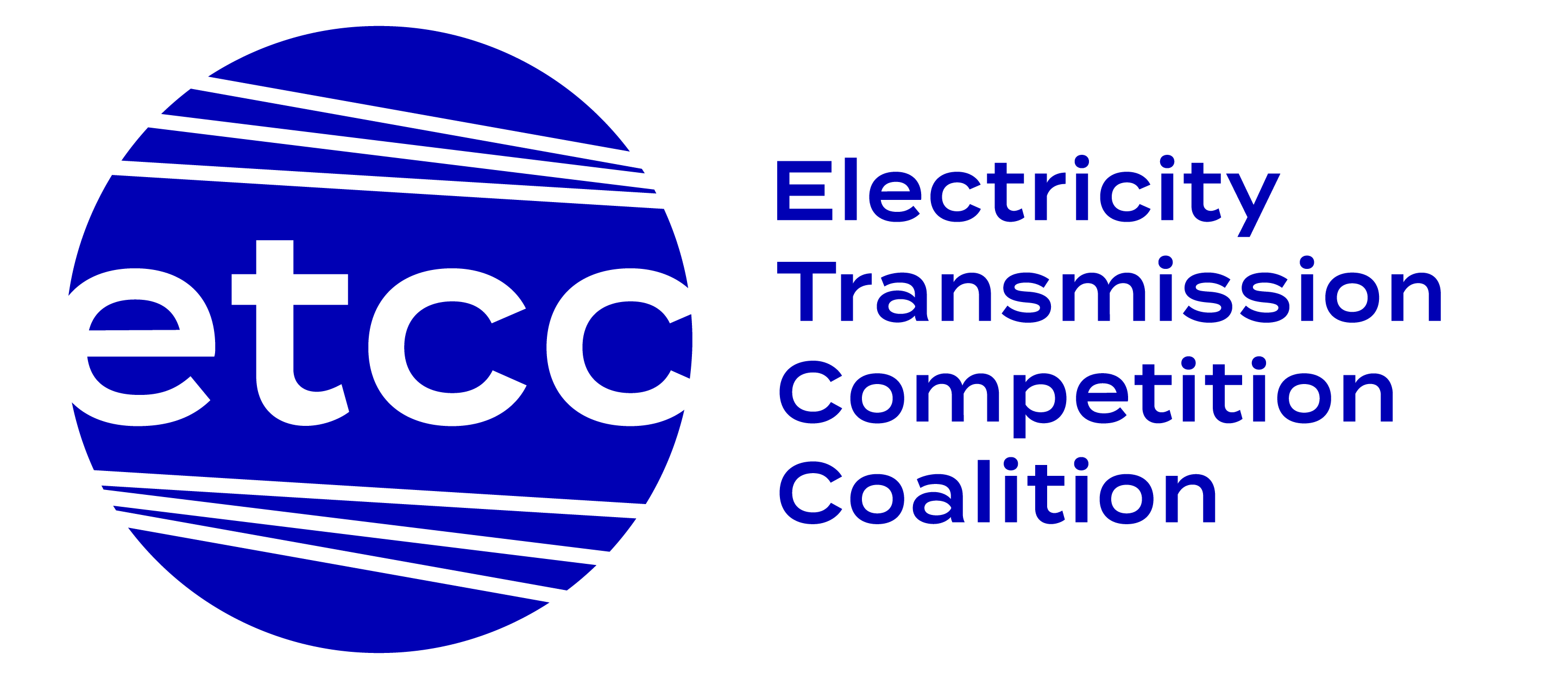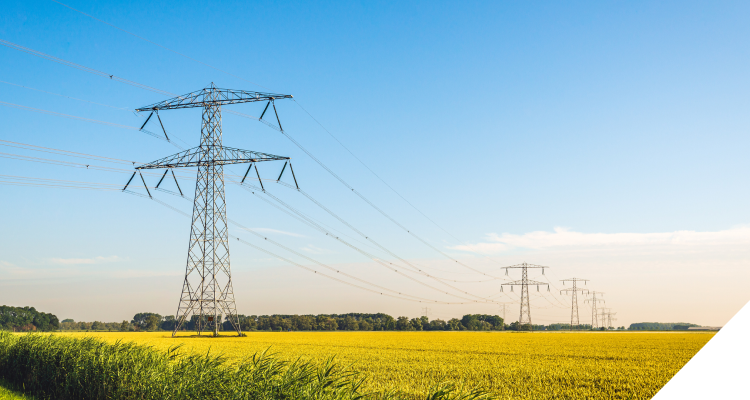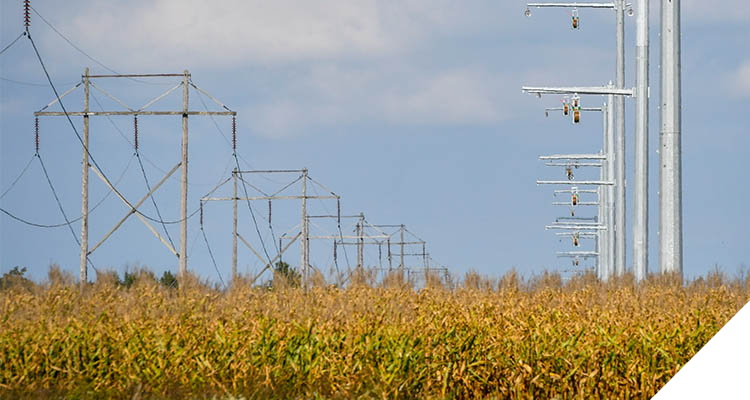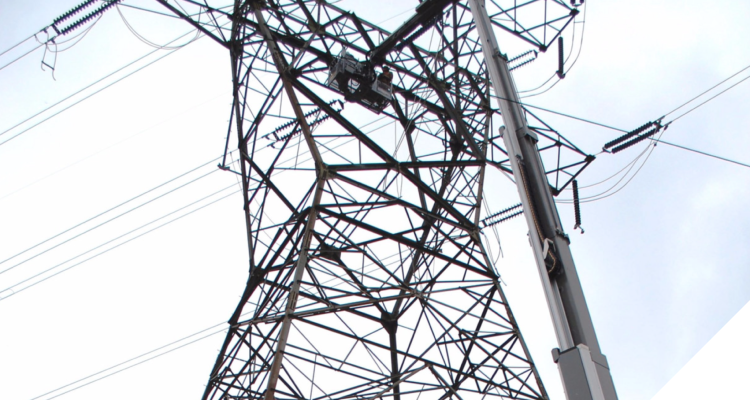FERC ORDER 1920
The Federal Energy Regulatory Commission (FERC) issued Order 1920 in May 2024, which contains a ‘Right-Sizing’ Right of First Refusal provision that would enable incumbent electric utilities to prevent competitive bidding of new transmission projects that will result in electricity price inflation for decades, harming families and businesses alike. FERC’s new policy prevents utility cost containment and project accountability. The position is in conflict with the White House EO on Competition, the Department of Justice and the Federal Trade Commission.
FERC ORDER 1920
The Federal Energy Regulatory Commission (FERC) issued Order 1920 in May 2024, which contains a ‘Right-Sizing’ Right of First Refusal provision that would enable incumbent electric utilities to prevent competitive bidding of new transmission projects that will result in electricity price inflation for decades, harming families and businesses alike. FERC’s new policy prevents utility cost containment and project accountability. The position is in conflict with the White House EO on Competition, the Department of Justice and the Federal Trade Commission.
Department of Justice and Federal Trade Commission Joint Filing
In response to the Notice of Proposed Rulemaking for Order 1920, the Federal Trade Commission and the Department of Justice submitted a joint comment to FERC urging it not to restore a right of first refusal for monopoly utilities.

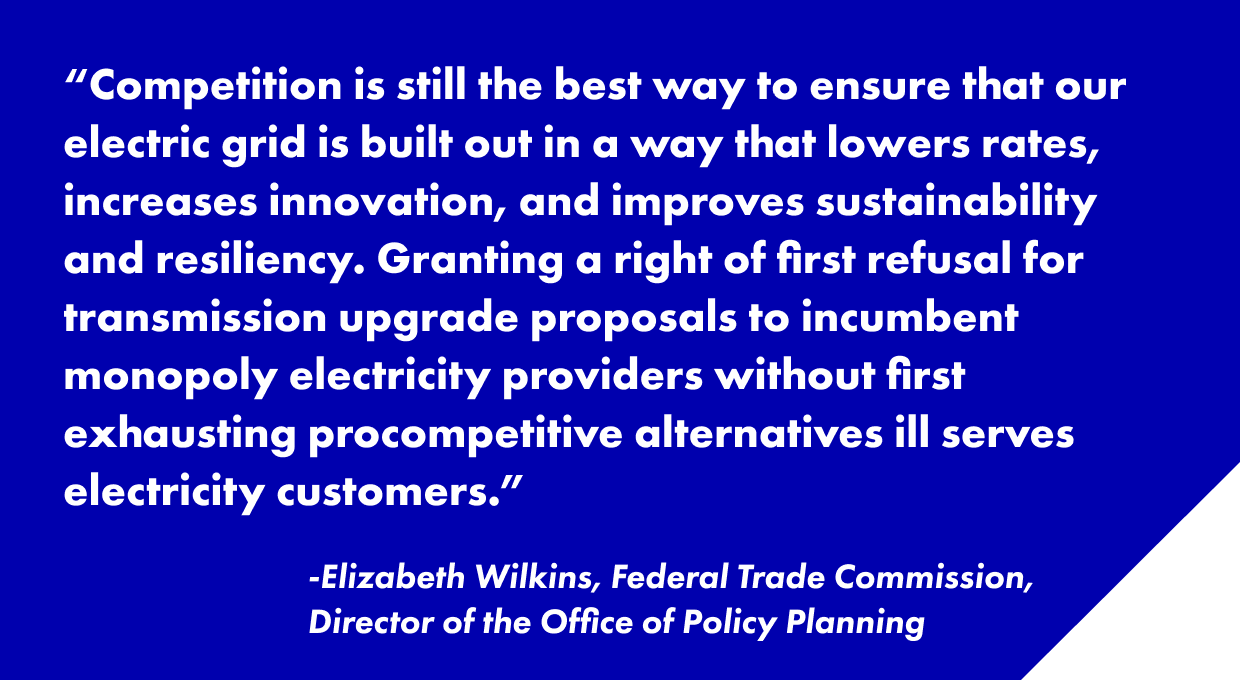
Benefits of Competition
Electricity transmission competition leads to improved service, increased innovation, and a more efficient, reliable, and resilient grid.
Competitively bid electricity transmission projects have been shown to reduce costs to consumers by up to 40 percent according to The Brattle Group. The U.S. will need to spend an estimated $2.1 trillion to achieve its net-zero goals. Competition would therefore save the U.S. over $840 billion.
FERC is in direct opposition to President Biden’s Executive Order on Competition. It is imperative that they drop both NOPR proposals that restrict transmission competition and, instead, enforce existing transmission competition requirements under Order No. 1000, oppose state ROFR laws, and expand competition.
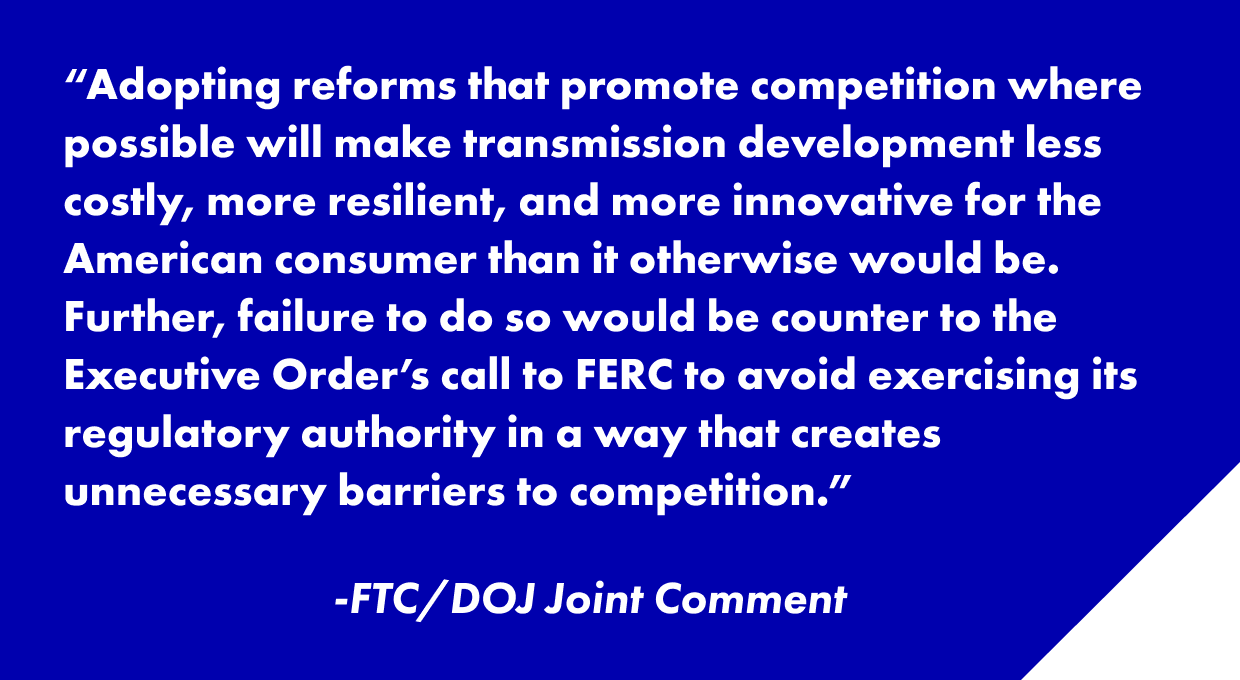
Competition at Work
Larrabee Tri-Collector Solution (LTCS) Project
Location: New Jersey
Year: Selected in 2022
Operator: PJM Interconnection
Builder: Mid-Atlantic Offshore Development (MAOD), Jersey Central Power & Light (JCP&L)
Overview: The Larrabee Tri-Collector Solution is the first offshore wind project transmission in the United States. MAOD will build a new substation and up to four DC converter stations, and JCP&L will transfer energy collected at the new substation three other substations. The competitive selection process saves New Jersey ratepayers over $900 million and also takes advantage of an additional $2.2 billion in savings through federal tax incentives.
Savings: $3.1 billion*
Empire State Line
Location: Western New York
Year: Energized in mid-2022
Operator: New York Independent System Operator (NYISO)
Builder: NextEra Energy Transmission New York
Overview: The Empire State Line project upgraded the energy transmission system that serves Western New York with a new, 20-mile 345 kilovolt line. The project was competitively bid and showcased the innovative value of competition.
Savings: $500 Million*
Artificial Island Project
Location: New Jersey
Year: Completed in 2020
Operator: PJM Interconnection (PJM)
Builder: LS Power
Overview: PJM received 26 proposals from seven entities, with proposals ranging from $100 million to over $1 billion. PJM awarded the project to LS Power, which offered more comprehensive cost containment with fewer exceptions than other proposals. The project was completed in 2020.
Savings: $591 Million*
